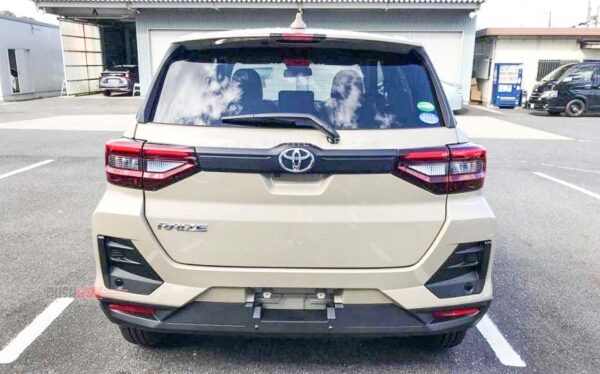Toyota’s strong hybrid SHEV powertrain will be approximately 30-70% more fuel efficient in comparison to a similar petrol powered unit

In automotive space and elsewhere as well, a new set of features can be quite useful in getting the customers’ attention. In recent times, it has been evident with products like Seltos, Sonet, Carens, Thar, XUV700, etc. Now, Toyota and Maruti are planning to do something similar with their new compact SUV that will primarily take on Hyundai Creta and Seltos.
Unlike some of the existing Maruti Suzuki cars that have a mild-hybrid system, the new Toyota, Maruti SUV will have a strong hybrid system. It will be a more advanced version, referred to as SHEV (Self-charging Hybrid Electric Vehicles). The technology is developed by Toyota and already in use with premium products like Camry and Vellfire.
Toyota will manufacture these SUVs and supply them to Maruti. It will be on the lines of product sharing strategy, as currently seen with Baleno/Glanza and Brezza/Urban Cruiser. These are manufactured by Maruti and supplied to Toyota in their rebadged versions. But in the case of the upcoming hybrid SUV, it will not be a plain rebadge job. Both these SUVs will be quite different in design. It will be more on the lines of what we have seen Hyundai and Kia did with Creta and Seltos.
Toyota Hum Hain Hybrid Campaign
Toyota’s version of the strong hybrid SHEV SUV is codenamed D22. It is likely to be launched first, followed by its Maruti sibling. Toyota is likely to launch their version by Diwali 2022, while the Maruti version is expected in Jan 2023. Ahead of the launch, Toyota has started promoting hybrid tech across all platforms.
The new campaign is called – Hum Hai Hybrid, meaning We Are Hybrid. Sources tell Rushlane that apart from promoting hybrid tech via ads on various platforms, Toyota has notified dealers to explain the benefits of hybrid tech to all customers who are visiting the showroom. Toyota dealers will be using Camry hybrid at the showroom to showcase the benefits of hybrid. Those small dealers who do not have Camry hybrid on display, will be given one by Toyota for a period of 6 months – purely for the use of promoting hybrid tech among customers.
Toyota SHEV tech
The primary idea behind a SHEV platform is to rely on electric power to drive the vehicle, wherever possible. The system comprises a standard petrol motor, a strong electric motor and a small NiMH (Nickel-metal Hydride) battery pack. Based on driving conditions and whenever battery power is available, the vehicle can be driven solely by the electric motor.
The battery keeps recharging itself via the petrol engine and through regenerative braking. When the battery is low or depending on driving conditions, the vehicle can effortlessly switch to the petrol motor. The battery does not need to be charged through an external source, as is the case with plug-in hybrid cars.
SHEV benefits
As the SHEV system is designed to maximize use of electric power, it significantly enhances the vehicle’s efficiency. When running on electric, the vehicle can achieve efficiency of around 90-95 percent. Fuel efficiency is also improved to around 40-80 percent. This has been evidenced in tests conducted by iCAT (IRDE cycle).
Another benefit is that there are no such issues like range anxiety. In areas where charging infrastructure is not readily available, a SHEV vehicle will be preferred over a fully electric vehicle. Tests reveal that SHEV vehicles will easily be able to comply with stricter emission norms. As electric motor usage is more, CO2 emissions are reduced by up to 50%. This is in comparison to equivalent petrol powered vehicles.
As strong hybrid vehicles use a relatively smaller battery pack, they can be made available at a competitive price point. Although they will cost more than a standard petrol powered car, SHEV vehicles will be cheaper than electric cars.

